Nutrition during pregnancy: The do’s and don’ts for mums-to-be

This post was created in collaboration with midwife Vivian.
Click here to read further information about midwife Vivian.
A balanced, varied and healthy diet is of great importance during pregnancy. It affects both the well-being of the expectant mother and the development of the child. Many pregnant women are not sure what they are allowed to eat during pregnancy and which foods are forbidden for the nine months of pregnancy.
Therefore, the following article gives you an overview of foods that you should eat during pregnancy, foods that you can eat in moderation and foods that you should avoid during your pregnancy. Please note that this list is not exhaustive and may not apply to all pregnant women (e.g. due to allergies, gestational diabetes, etc.). If you are unsure which foods are suitable for you, please contact your gynecologist or midwife.
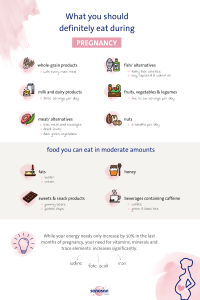
Nutrition during pregnancy: What you should definitely eat

While your energy needs only increase by 10% in the last months of pregnancy, your need for vitamins, minerals and trace elements such as iodine, folic acid and iron increases significantly. For those who wish to have a child folic acid is recommended even before pregnancy, because the neural ear closes already in the first weeks of pregnancy.
Whole-grain products: With every main meal you should consume grains (preferably whole-grain products such as whole-grain pasta or whole-grain rice) or potatoes. Whole grain products are more filling and contain more vitamins, minerals and fiber. Whole-grain bread, for example, contains twice as much iron and magnesium as white flour bread.
Milk and dairy products: Three servings of milk and dairy products are recommended per day. They contain calcium, protein and other vital substances that support the development and bone formation of your baby. If you live vegan, you should make sure to cover your calcium needs with other foods. Calcium rich foods include sesame seeds, nuts and amaranth. Alternatively, fortified plant-based drinks such as soy or oat milk can be consumed.
Meat/ alternatives: Besides protein, meat contains important vital substances such as iron, zinc and B vitamins. Lean meat and sausages are particularly suitable during pregnancy. If you do not eat meat during pregnancy, you can switch to other foods that contain iron and vitamin B12. These include dairy products, eggs, legumes, whole grains, dried fruits and dark green vegetables.
Fish/ alternatives: Fish is a source of vitamin D, iodine and protein. Since it also has a high proportion of omega-3 fatty acids, it is often recommended. Particularly suitable are fatty fish varieties such as salmon, herring, mackerel and trout. However, it is also important to be aware of the “don’ts” when it comes to fish. If you want to avoid fish during your pregnancy, other foods that contain omega-3 fatty acids can help. These include soy, rapeseed and walnut oil. Since these edible oils contain only a small amount of these fatty acids, it makes sense to consume additionally enriched foods.
Fruits, vegetables and legumes: Fruits, vegetables and legumes contain important vitamins and minerals – five to six servings per day (e.g., one serving of fruit, three servings of vegetables, and two servings of legumes)are sufficient here. This also includes juices and soups. It is important to always wash the fruits and vegetables properly and, if possible, prepare them fresh. You should avoid packaged and processed salads as well as pieces of fruit, as they could contain listeria.
Nuts: Nuts provide the body with many monounsaturated and polyunsaturated fatty acids. They are an energy supplier, essential for a healthy nervous system, hormone balance and a well-functioning cardiovascular system. You can consume a handful of nuts per day.
Vegetarian and vegan diet during pregnancy
A vegetarian or vegan diet during pregnancy is possible in theory. However, you have to make sure that you are properly supplied with all important nutrients. This is not only essential for yourself, but also for the growth and development of your baby.
It is strongly recommended to discuss a vegetarian or vegan diet with your gynecologist or midwife. This will ensure that there are no deficiencies in nutrition that could harm the baby. Pregnant women are also advised to have their blood levels checked regularly, so that any deficiencies can be quickly corrected.
Food you can eat in moderate amounts during pregnancy
Sweets and snack products: When it comes to sweets and snacks such as gummy bears, chocolate and potato chips, the rule is: eat only a small portion per day. You should be particularly careful when eating licorice. Licorice consists of the ingredients of the licorice root. The glycyrrhizin contained in licorice root can negatively influence the development of the child by increasing the blood pressure of the pregnant woman and making the placenta more permeable to the stress hormone cortisol. Although the connections are not entirely clear, the Federal Institute for Risk Assessment recommends avoiding regular consumption of licorice during pregnancy.
Honey: Honey contains many vitamins and trace elements. Nevertheless, because of the high sugar content, you should eat no more than one teaspoon per day. In principle, honey should not be given to babies under one year of age, because the spores of the bacterium Clostridium Botulinum contained in honey can lead to infant botulism (colonization of the intestine of children under one year of age with the bacterium Clostridium botulinum, leads to paralysis beginning at the head). For pregnant women and thus also for unborn babies this bacterium is harmless, because the stomach acid kills the bacterium quickly.
Beverages containing caffeine: Caffeine is found in coffee, green and black tea and in coke. Since too much caffeine can have a negative impact on the development of your child, the daily dose of 200mg of caffeine per day should not be exceeded.
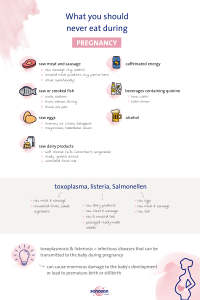
Nutrition during pregnancy: what you should never eat during pregnancy

Toxoplasmosis and listeriosis are infectious diseases that can be transmitted to the baby during pregnancy. These infectious diseases can cause enormous damage to the baby’s development or lead to premature birth or stillbirth.
Raw meat and sausage: Dangerous bacteria such as toxoplasma and listeria can be found in raw meat and raw sausage. Therefore, you should avoid foods such as steak (pink, bloody), tartar, minced meat, raw ham, carpaccio, raw sausages and smoked meat products (salmon ham, parma ham, smoked bacon). All meat dishes you eat should be cooked through or cooked. Meat sausage, mortadella and cooked ham can therefore be consumed without hesitation.
Raw or smoked fish: There is also a risk of listeriosis with raw or smoked fish. You should avoid sushi, sashimi, oysters and smoked or pickled fish such as trout, salmon or herring. Sea fish may be contaminated with heavy metals or mercury. Mercury can damage the development of the nervous system in the unborn child. Predatory fish from the sea such as tuna, swordfish, eel and pike should therefore be avoided. As with meat, the following rule applies: Always cook well.
Raw eggs: Raw eggs contained in desserts (tiramisu, chocolate mousse, ice cream, zabaglione), mayonnaise and hollandaise sauce may contain salmonella. Salmonella poisoning cannot be transmitted to the baby, but it can lead to malnutrition. Eggs should therefore always be well cooked during preparation.
Raw dairy products: Raw milk and cheese made from raw milk can get listeria and should therefore be avoided. This includes soft cheeses (Camembert, Brie, Gorgonzola, Roquefort), ready-grated cheese and untreated fresh milk. Hard cheese made from raw milk and soft cheese or semi-hard cheese made from pasteurized milk can be consumed without hesitation.
Caffeinated energy drinks: Caffeinated energy drinks contain a lot of sugar, caffeine and unhealthy additives. Therefore, these should also be avoided.
Beverages containing quinine: Tonic water and bitter lemon contain quinine. Since quinine is a natural plant poison and in large quantities can cause symptoms such as vomiting, impaired vision or premature labor, pregnant women should avoid it.
Alcohol: Be sure to avoid foods and dishes that may contain alcohol (e.g., chocolates, tiramisu). Even very small amounts of alcohol can harm the unborn child and cause maldevelopment.
Always remember:
Paying attention to so many guidelines in terms of nutrition during pregnancy is certainly not always easy. Nevertheless, if you eat a balanced diet, you will not only be doing yourself good, but also your baby. Remember that you only have to do without some things temporarily and that the wait will pay off when you hold your healthy baby in your arms.
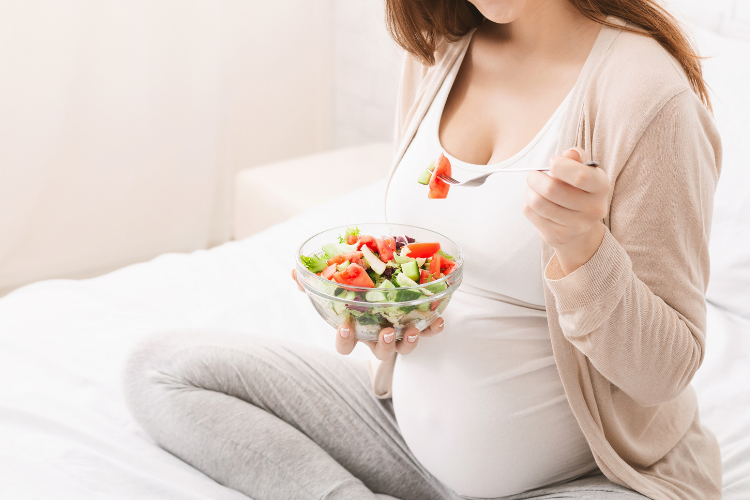
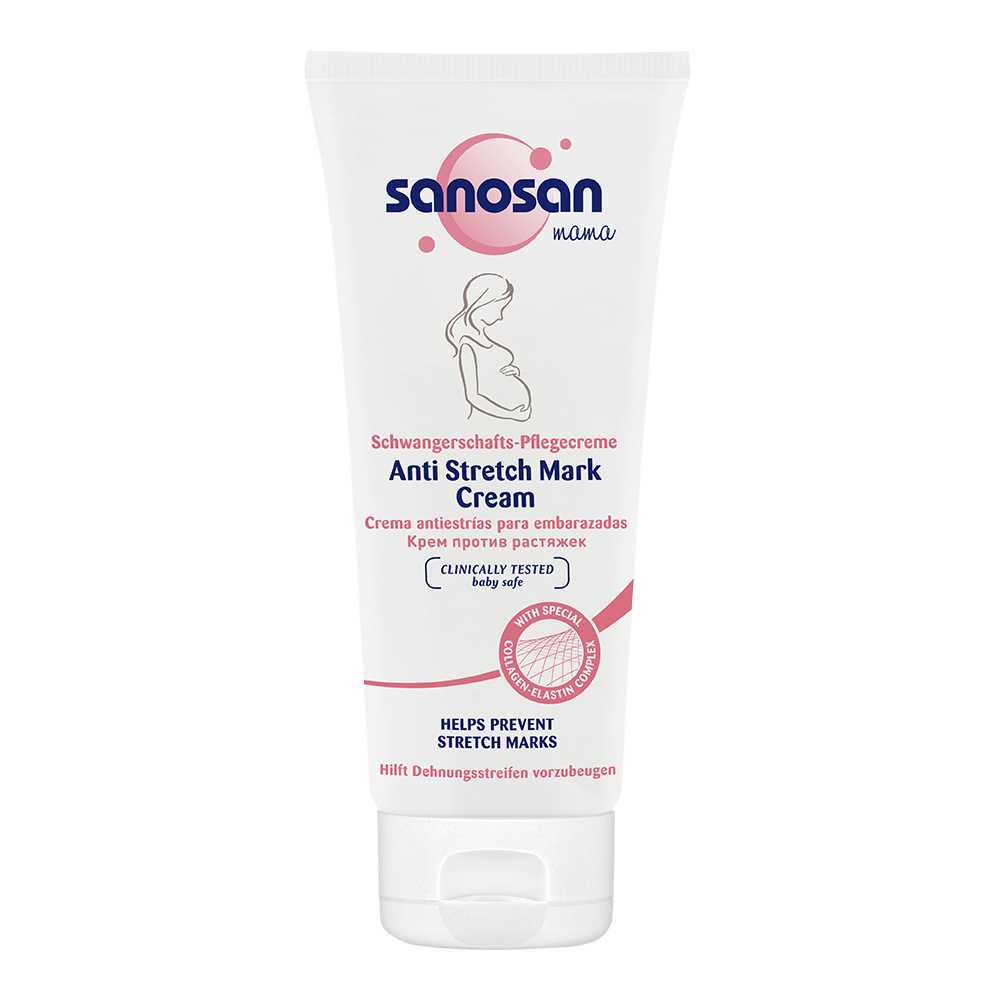
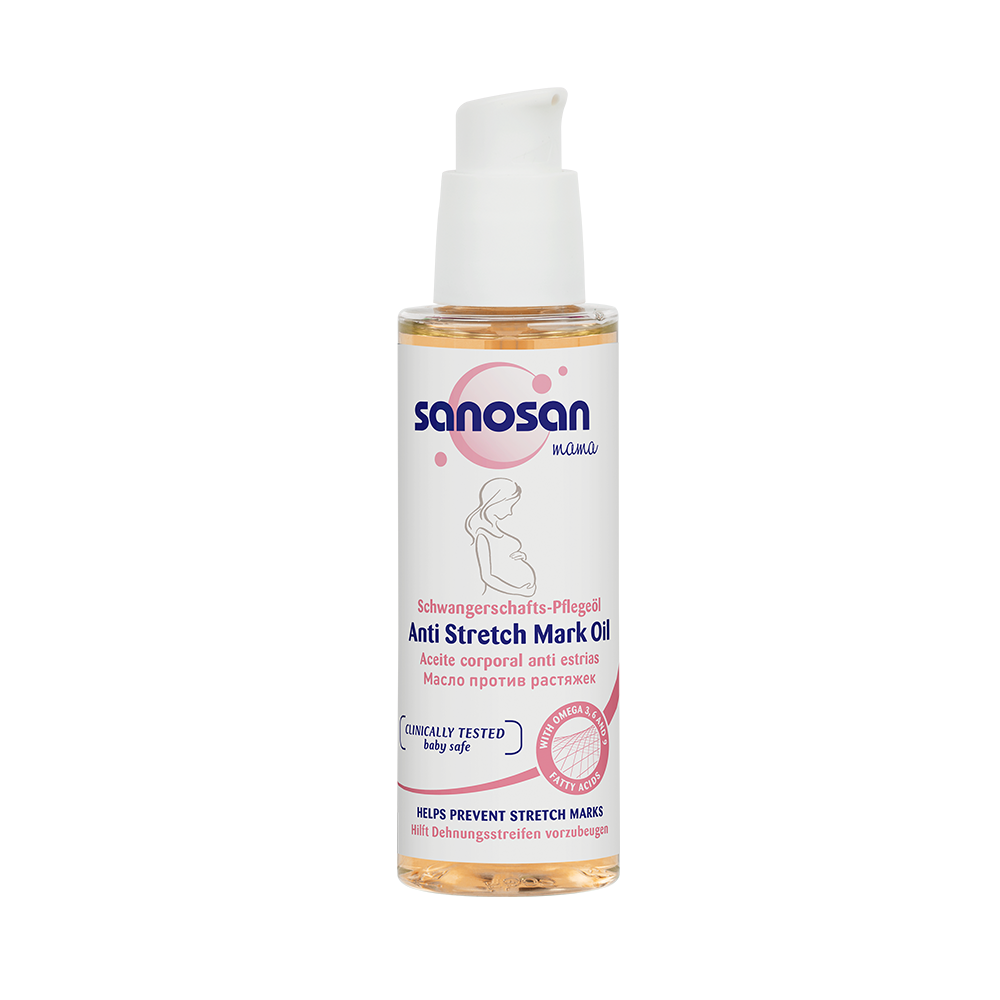
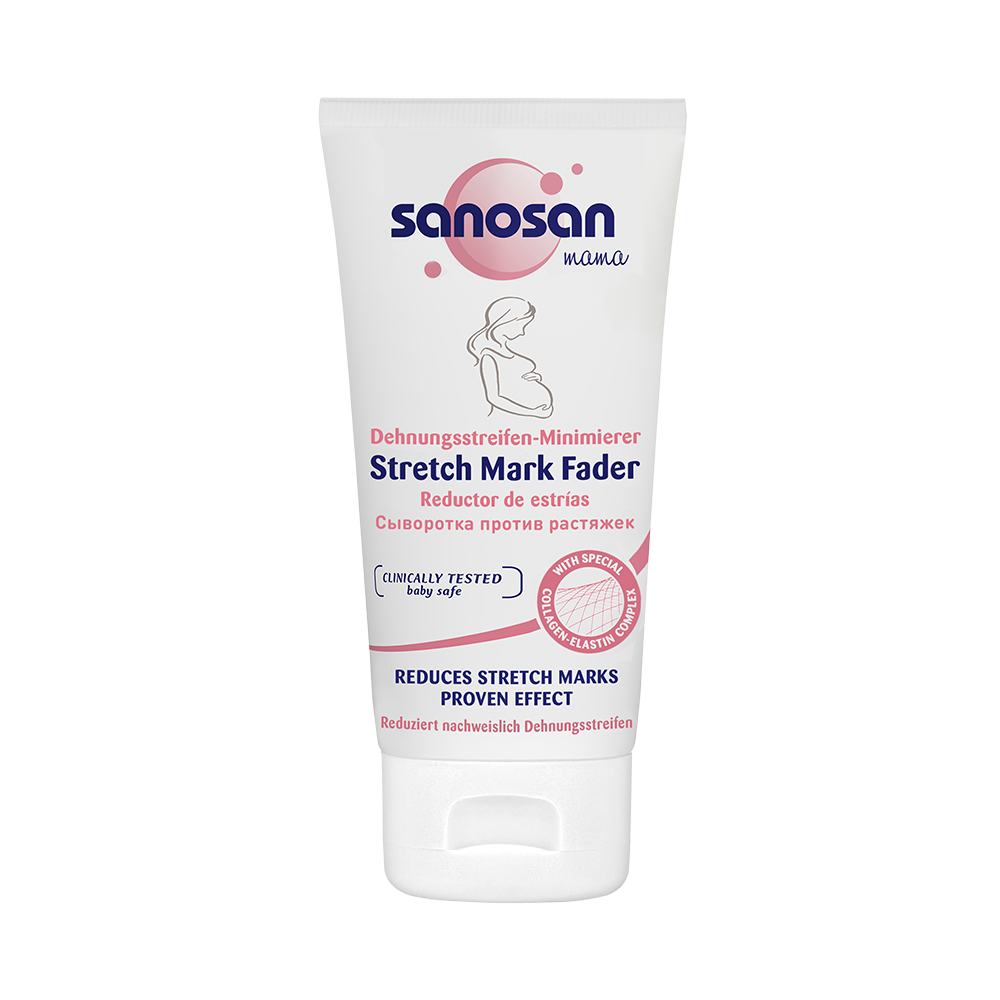
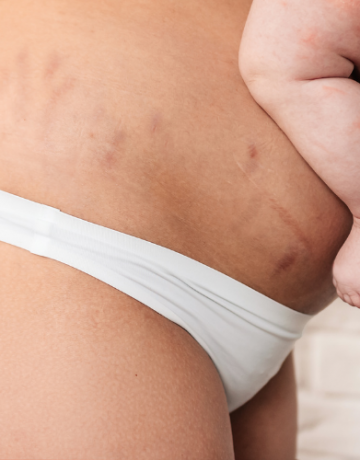
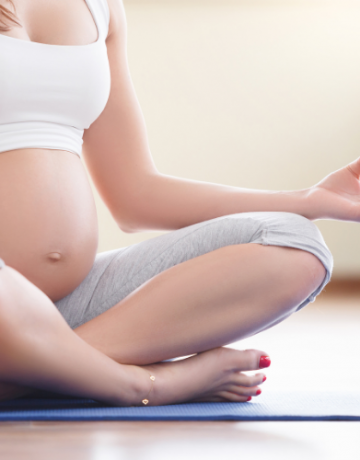
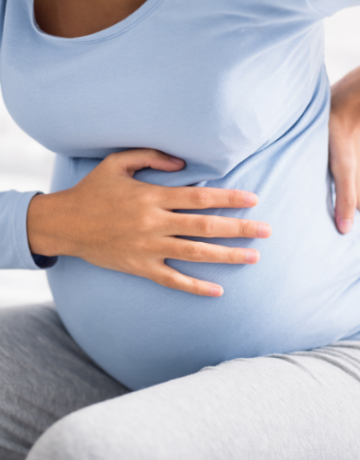
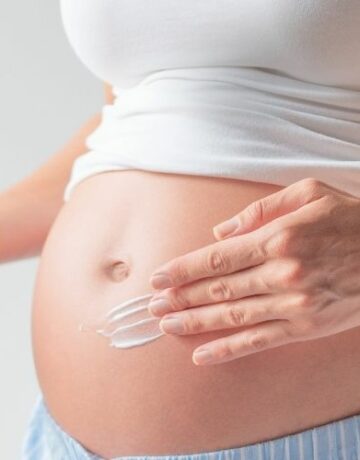
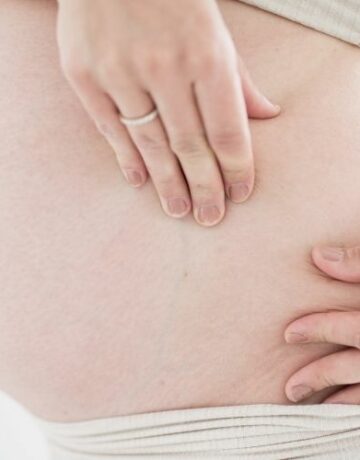
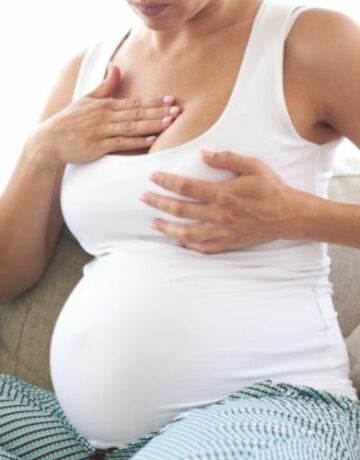
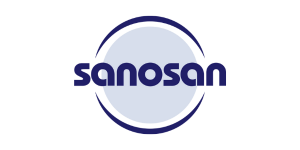
Comments (0)